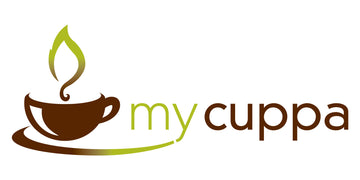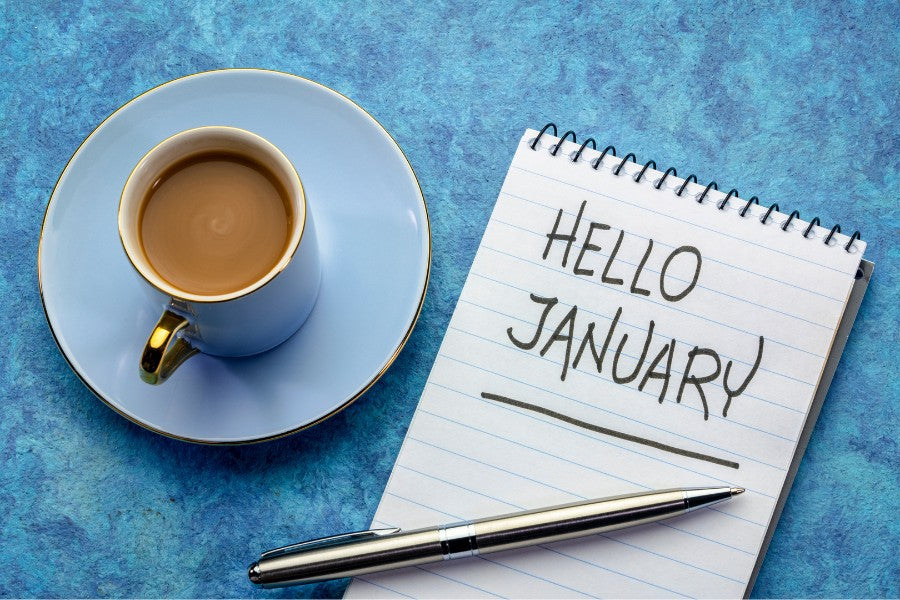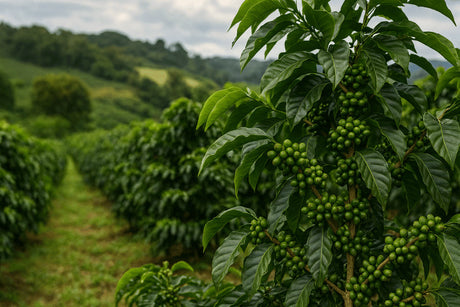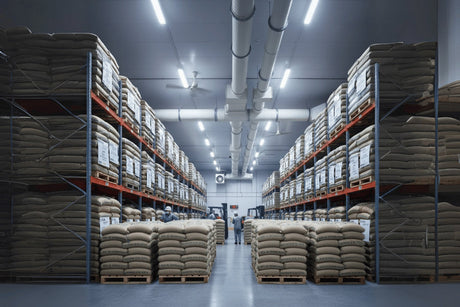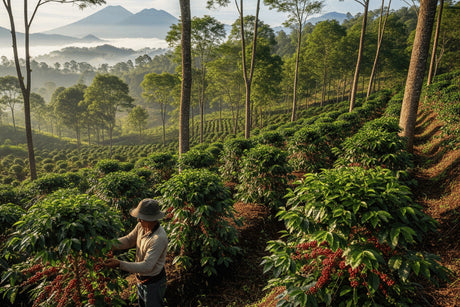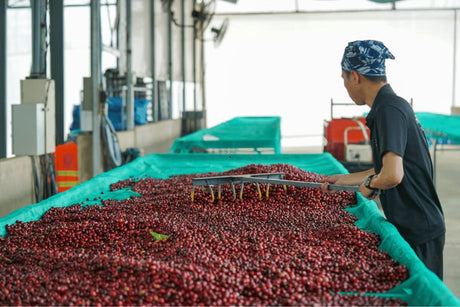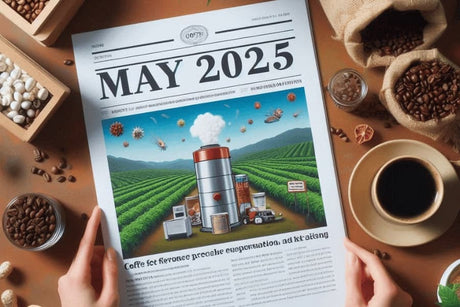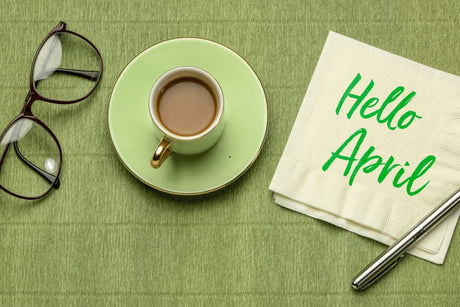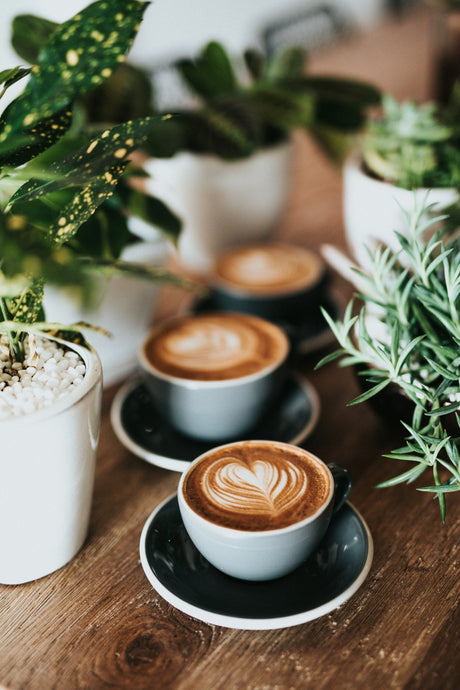“Life is like riding a bicycle. To keep your balance, you must keep moving." Albert Einstein
January 2023 mycuppa Newsletter
It's a New Year, and the opportunity for change.
After almost 14 years of active participation in the FAIRTRADE certification system, we have terminated future involvement in FAIRTRADE Australia and New Zealand (FLANZ) from January 2023 (date to be confirmed).
It's a decision we have taken and is not related to any compliance or disputes with FLANZ.
There have been many moments over the last five years when we considered halting our involvement in the FAIRTRADE system.
A recent announcement by FAIRTRADE of a critical partnership with 7Eleven was the final straw in what we think is a poor judgement by FLANZ.
Please read our opinion piece below to learn why the FAIRTRADE program has failed to attract support in the global coffee supply chains.
Groundhog DayEvery year, without fail, parcel networks experience a significant catastrophe in December.
Unfortunately, that's been the case since 2010, and whilst we will never know when it will happen, you can reliably bet that it will be the first week in December.
This time, it was critical in the December 5th - 7th period when hundreds of our parcels (along with many other senders) destined for NSW customers disappeared into a black hole for between 1 and 2 weeks.
The impact was felt primarily by the Sydney metro area receivers and the many regional NSW towns that pass via the Sydney Parcel facility.
Excuses like "peak season", "overloaded from Black Friday/Cyber Monday", or "Xmas shopping", etc., provide convenient "smoke screen" cover that enables freight providers some crucial time in avoiding dealing with incidents.
They love pushing out the ETA's when there has been an internal "stuff up". Adding an extra couple of weeks does nothing but scare the hell out of receivers and deflect the pressure and pain away from AusPost and squarely back to the senders when they are powerless to fix it, almost like watching a Donald Trump or Scott Morrison interview.
Whenever freight companies get overloaded in the last week of November and the first week of December, unexplainable and stupid stuff happens.
Similar in pain to those nightmare situations during pandemic lockdowns with delays from these unexplainable "black holes". To blame it on being overloaded is just another case of absurdity by freight providers – plenty of cargo sent before and after the "5th – 7th December" arrived in reasonable timeframes.
As best as we can piece together from snippets, it would appear AusPost were packing parcels into shipping containers at their distribution centres.
So, they move those containers around the country with zero tracking or oversight.
In this case, containers of parcels destined for Sydney were misrouted by AusPost, firstly in Victoria and then obscurely hidden in Canberra. But they denied that parcels were lost or hiding in Canberra for almost two weeks.
Despite all our complaints, escalations, yelling and screaming, it proves how utterly helpless senders are when trying to fix a critical problem.
Naturally, they ignore all signals senders feed them that warrant or justify "investigation". It's dismissed by hiding behind the convenience of "peak season" smoke screens.
The only way such problems are fixed is when some random AusPost employee cracks open a container to realize, "Surprise, not expecting that".
Yes, folks, all our complaining and escalating achieves nothing.
Instead of investigating by tracing and tracking known events, the sort of thing reasonable people would undertake, freight companies adopt the lazy and easy way. She'll be right; wait long enough until someone trips over it. "Found it, hey aren't we great for finding those missing parcels"!
Shipping Price UpdateWe last time we updated our shipping rates at mycuppa was a long time ago.
Since the last significant refresh, there have been at least six price rises, introducing a security surcharge for Express and a sizeable fuel levy of greater than 10% on all services.
Back in July 2022, AusPost completely restructured its shipping zones – simplifying the matrix from 30+ down to 6.
Many postcodes will experience shipping price changes that are either rising or falling, and it's something AusPost does from time to time – change what postcodes reside in what zones.
At a high level, the big winners are WA customers now paying about the same price as Sydney, and quite frankly, it's cheaper to send stuff to WA than it is for the outer suburbs of Melbourne, barely 20 minutes drive away.
Seriously, I don't know how they worked that out!
Unfortunately, the list of losers includes all of Tassie (for reasons that don't make sense) and many areas of Australia where AusPost has pushed hundreds of postcodes from a moderate rate into the more expensive "regional/remote" zone, attracting steeper increases.
Again, we can't work out their logic in the pricing, as the old yardstick of distance has been thrown out the window. At a high level, people living in regional towns are forced to pay a lot more for shipping than previously.
We have done our best to try and neutralize the shock (we are not applying surcharges), and our customers should also be aware we are heavily subsidizing shipping for bulk orders.
Shipping coffee around Australia is now costly, regardless of location. Coffee is a bulky product and needs some decent protection in transit.
Freight companies continue to chase the "small satchel" segment with attractive rates, penalizing bulkier items like medium-sized cartons.
Satchels will never work for coffee – we already deal with a lot of smashed cartons and damaged packs. That's why we take plenty of precautionary measures to protect the contents.
Secret Label.The incredible surge in December for our highly popular Secret Label took us by surprise, selling out almost 2 weeks early, leaving some customers that waited empty handed.
December is always a notoriously difficult month to estimate volumes with exceptionally high demand in the first 2 weeks followed by low demand in the following 2 weeks.
January's Secret Label is a coffee we have wanted to craft for at least 3 years, but each time we came close, there was one ingredient not available.
This month the stars aligned. We did it and gosh, it’s so delicious.
Lush, classy, refined, punchy, complex, layers of different X-factor chocolates. Lost for words.
Mandarin, bittersweet chocolate (that’s intentional, so please don’t be afraid), almond butter, toffee, hazelnut, cocoa and dark berries.
Doubt it will last the full month of January. Don’t miss out or end up disappointed.
Grab it here - mycuppa Secret Label

Is the end in sight for FAIRTRADE?
The FAIRTRADE certification program promises much yet delivers so little to the intended beneficiaries.
I won't debate the "financial engineering" used to justify the percentage of funds given to those in need. However, it is worth pointing out that the global organisation of FAIRTRADE, whilst non-profit, does consume a considerable portion of all fees and levies collected.
It's also important to clarify that FAIRTRADE is not a charity.
The program has been shunned around the globe by many coffee roasters, raw coffee traders and brokers and many other participants in coffee's supply chain.
I don't know if anyone has tried to calculate the participation rate of FAIRTRADE within the coffee industry, but it's undoubtedly below 5%.
There was a time long ago when the FAIRTRADE message held relevance – relying upon the narrative of coffee farmers and their communities existing in poverty and borderline slavery.
But that's an outdated construct - times change, situations evolve, people transition, and markets move.
Coffee farmers can obtain more money for their crops by selling into the specialty segment rather than accepting the FAIRTRADE premium, which used to be a paltry 20 cents per pound over the primary index but is probably a bit, but not much, higher today.
Instead, coffee farmers can achieve double or triple FAIRTRADE premiums by operating in the specialty channel.
For these significant reasons, the global coffee industry has entirely bypassed the FAIRTRADE model.
But it's not just about dollars and cents; FAIRTRADE achieves many other things, such as education and community support where needed, at the origin of farming or growing.
Today, support of the modern FAIRTRADE program mainly comes from a small number of large corporations and organisations seeking to "attach themselves" to a "do good campaign".
Think supermarkets and large retailers with well-known practices of "screw down" strategies upon their suppliers behind closed doors, buying at the lowest possible rates. Then, they pay for a marketing logo from a "social and ethical" program to co-brand their offerings.
When a big brand attracts attention or challenge from activists, they conveniently point to sponsoring these certification programs (including Rainforest Alliance) to make the noise and risk magically disappear.
It's like a perfect "get out of jail" card.
FAIRTRADE Australia and New Zealand (FLANZ) recently announced a shiny, new partnership with 7Eleven for their coffee beverages. Upon reading this news, the first thought that came to my mind was, "Strange, it smells like some reputation washing going on here".
It wasn't long ago that 7Eleven committed wage fraud. Not just once but detected many times over many years, according to reports from Fair Work and investigations by Four Corners and Fairfax media.
The 7-Eleven + FLANZ love match is a natural stretch of our ethical imagination, and it's a reason we brought forward the decision to terminate our involvement in FAIRTRADE early, in protest.
Our existing FAIRTRADE lots in our warehouse will be sold from this point forward as Organic certified coffees. Our research indicates that the Organic feature is more desirable to our customers than FAIRTRADE.
The segment has declined, with fewer certified FAIRTRADE coffees imported into Australia each season. Roasters and importers have been deserting the program for the last decade.
Moving forward, we will continue to source Organic certified coffees as this offers a more excellent range of available coffees than the highly restricted and limited FAIRTRADE Organic range.
